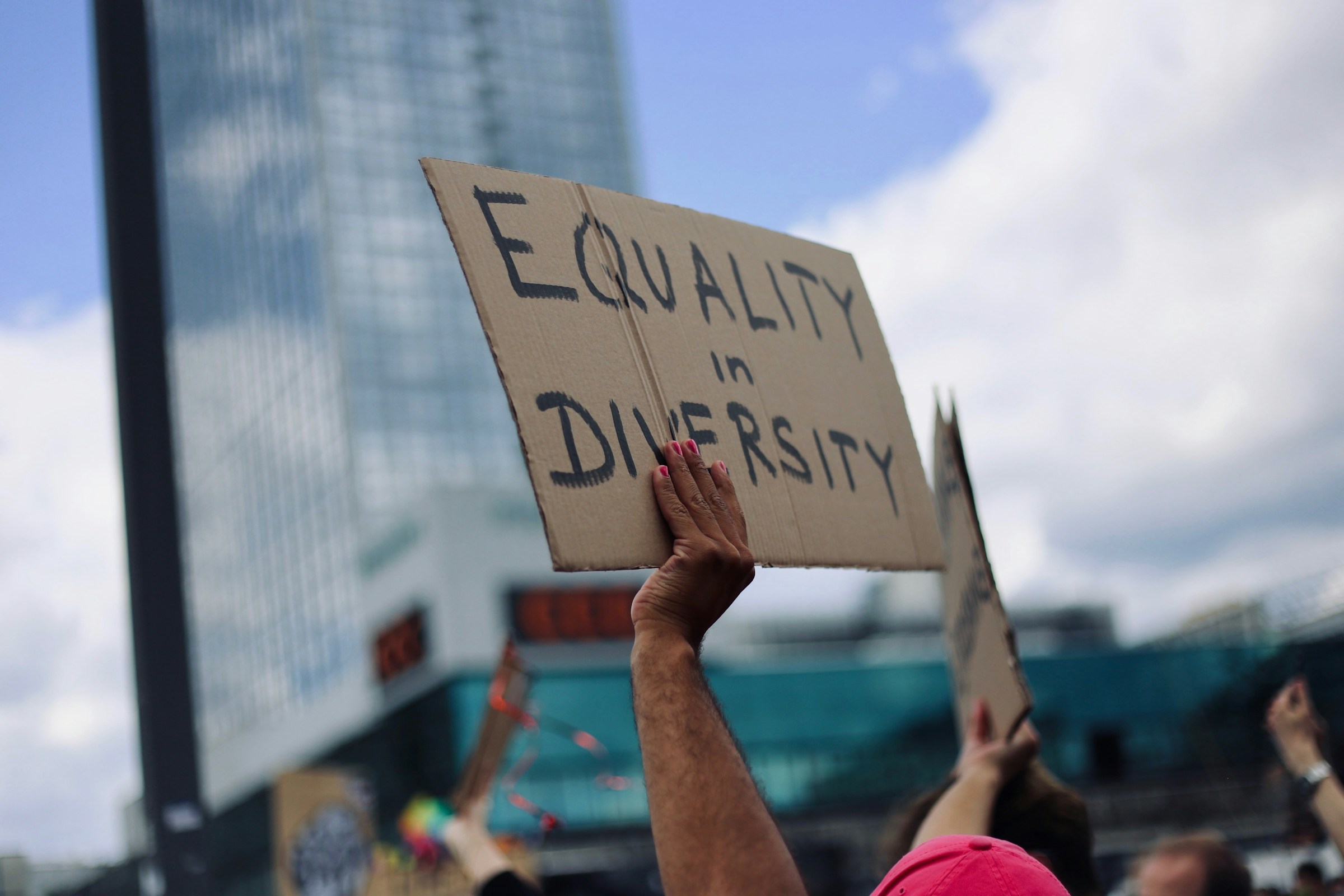It can be tempting to see human progress as a linear path towards a brighter future of wider equality, empathy and compassion. And there’s no denying that progress has been made in these areas. However, the early months of 2025 are a reminder that life isn’t always linear and what has been gained can also be taken away.
This year has seen a sea change in western politics that has had a knock-on effect in the world of big business. Whether you call it EDI, ED&I or DEI, the influence of equality, diversity and inclusion policies and departments has received a major blow.
Before we look at what is happening, a reminder of what EDI means:
- Equality means treating everyone fairly and providing equal opportunities
- Diversity is about embracing what our differences can help us bring to the table
- Inclusion means creating a culture where nobody feels excluded because of their background
These differences can be based on race, religion, gender, sexuality, disability, economic status and much more. They can be visible or invisible and they can change – and did for me when I was diagnosed as autistic and ADHD in the last two years.
EDI has come under increasing political attacks, resulting in governments and multinational businesses – especially in the world of tech – scrapping departments and policies.
The opposing view of EDI is that it can lead to people being given jobs they aren’t qualified for on the basis of meeting criteria based on protected characteristics. The perception of this can result in people feeling discriminated against precisely because they are in the majority.
Fortunately there has also been a reaction to this backlash, with the likes of Apple and Microsoft reaffirming their commitment to EDI. Apple described that EDI is about fostering a ‘culture of belonging’, which is a powerful phrase indeed.
Microsoft’s Chief Diversity Officer Lindsay-Rae McIntyre highlighted the business case for EDI, saying that inclusivity helps them build better products and services for a global audience. This is a hugely important message, because it demonstrates that doing the right thing isn’t just about doing it because it’s the right thing to do.
Diversity, equality and inclusion doesn’t just mean giving everyone a fair opportunity, free from discrimination. It also means bringing in voices, perspectives and ideas that might otherwise not be heard.
A business made entirely up of one type of person cannot possibly hope to represent all of its diverse customers effectively, when only one type of experience and perspective is available.
From a purely practical perspective, EDI is also increasingly important to be able to demonstrate when applying for funding or bidding for tenders. But it should never be seen as something to be done as lip service to help win bids.
At Social we strongly believe that this is the right thing to do. It aligns with our core values of Courage, Ambition, Pride and Empathy and our diverse EDI group meets every month to discuss what we can do better to a welcoming, inclusive employer.
All of our needs as humans are different and unique, as well as our beliefs, challenges, opinions, experiences and what we can bring to Social and to our clients. Celebrating those differences and working to eliminate discrimination and division makes us stronger and more united as a business as well as happier and more secure as people.
So while it is disheartening to see a pushback against the concepts that EDI is rooted in, we should see it as an opportunity to double down on our efforts to be a force for good and show that it can be a tool for driving positive social change.
By James Ellaby, Senior Content Writer


